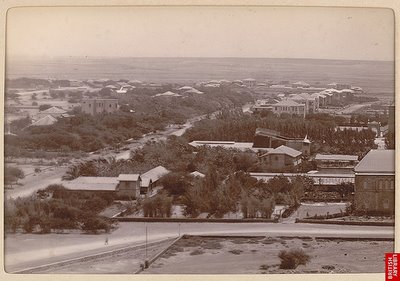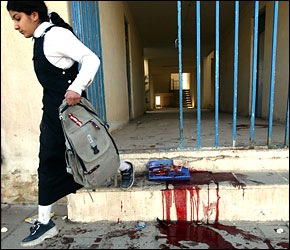Le génocide? C'est une bonne chose
Deeply disturbing article in the Guardian today on France's role countenancing, even outright supporting, the genocide in Rwanda. The article talks about France's leading anti-terrorism judge heading an inquiry into the genocide and concluding that the Tutsis essentially brought it upon themselves since they - according to the judge - were responsible for the assassination of the then President Habyarimana, which set off the mass killing. The present government, headed by Tutsis, rejected the findings and in turn set up its own inquiry to look at France's support for the Hutu militias and death squads before and during the massacre, turning up with some fairly damning evidence.
When the genocide started, Paris made no secret of where its loyalties lay. The French military flew in ammunition for government forces and, in the following weeks, a stream of Hutu officials travelled to Paris, including Jean-Bosco Barayagwiza, who was later convicted of genocide by the international tribunal, for meetings with President François Mitterrand and the French prime minister. Even as the mass graves filled across Rwanda, Paris engineered the delivery of millions of dollars' worth of weapons to the Hutu regime from Egypt and South Africa.
Africa has traditionally been considered such a special case in Paris that France's policy is run out of the presidency. At the time, the "Africa cell" was headed by Mitterrand's son, Jean-Christophe, a close friend of the Habyarimanas. He later said that there could not have been a genocide because "Africans are not that organised". France's president did not deny what had happened, but took a view no less racist: "In such countries, genocide is not too important."
By the way, French disdain for human life was not restricted to mere words. I had heard this story elsewhere too, and am glad this article mentions it which saves me from trying to find a reliable source on google.
The French army turned its back on many others, including the French embassy's Tutsi staff, who were mostly abandoned to their deaths despite desperate pleas to diplomats they had worked with for years. The French soldiers did rescue some Rwandans. They took the assassinated president's wife (a notorious anti-Tutsi extremist in her own right), and various Hutu politicians who helped organise the genocide. They also remembered the French embassy dog, which was carefully loaded on to an army lorry while a Tutsi man who ran up to beg for help was turned away.
Why, you might ask, did the French train and arm the Hutu militias with machetes, against the minority Tutsis, who literally had just sticks and stones? The claim is made that it was a question of language and culture. Apparently, the French would rather support Francophones over Anglophones, consequences be damned. A French historian is quoted in the piece:
Gérard Prunier, a French historian who advised the French government during the later stages of its intervention in Rwanda, has characterised Paris's view of its former African colonies not as foreign countries but as "part of the family". Paris's African "back yard", he wrote in a history of the Rwandan genocide - in which he made clear his disaffection with French support for the Hutu regime - "remains its back yard because all the chicks cackle in French. There is a high degree of symbiosis between French and Francophone African political elites. It is a mixture of many things: old memories, shared material interests, delusions of grandeur, gossip, sexual peccadilloes."
He added: "Of course, the arch-enemy in this cosy relationship, the hissing snake in the Garden of Eden, is the 'Anglo-Saxon'." Prunier said French governments viewed "the whole world as a cultural, political and economic battlefield between France and the Anglo-Saxons ... It is the main reason - and practically the only one - why Paris intervened so quickly and so deeply in the growing Rwandan crisis."
Somehow, I find dubious the claim that the French went through all this trouble only because they wanted Rwanda in the control of people who spoke French and not English. Surely 800,000 deaths were not worth a cultural sphere of influence? Then again, I know next to nothing about the region or its politics (though lately I've been developing an interest), so it could well be true.






